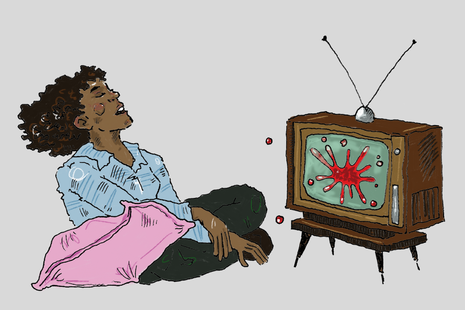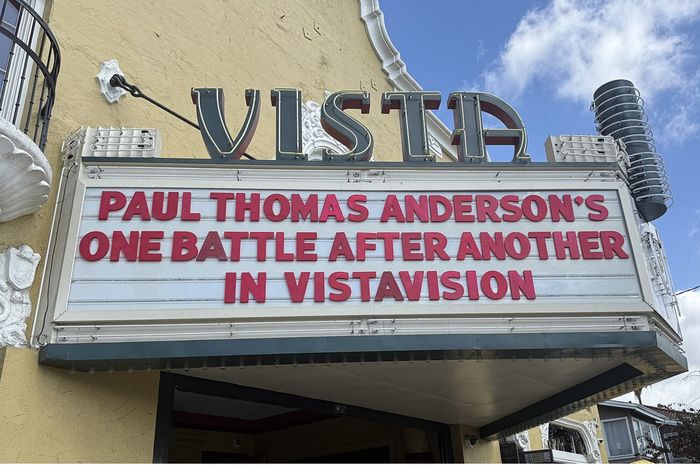Why do we love serial killers?
Freya Compton investigates our attraction to crime media

Every year, thousands of TV shows are created globally. Considering 80% of pilot episodes are dropped before ever reaching a TV audience, it’s shockingly impressive when a show makes it to 300 episodes. It’s a landmark that proves, beyond doubt, that the series is loved, and likely rewatched by many, for a specific feeling of comfort, excitement, or reliably dramatic entertainment.
Crime shows make up a large number of these cult classics, from Criminal Minds to Law and Order, NCIS to Chicago PD. It’s likely most of us have watched some crime at some point in our lives. With these shows lasting so long, it’s no surprise that the genre attracts many die-hard fans, whether it’s the gruesome plots that get us hooked or the background comfort of a show like Brooklyn 99. But why are we so drawn to crime shows?
The continued success of these shows over the past 20-odd years has coincided with a rise in true crime in the wider culture – through podcasts, dramatised Netflix specials, or reimagined history shows like Unsolved Mysteries, it’s not hard to find a fix. But these stories often encourage us to think about the darkest corners of humanity, even more so than fictional tv; in theory, we should be exhausted and put off by all the gruesome imagery, and yet for most of us it isn’t in the slightest bit deterring.
“It’s human nature to be curious about our own behaviour”
It’s human nature to be curious about our own behaviour. Some say the genre is popular for different genders for different reasons, with women watching because of a desire to empathise and understand the victims and perpetrators, and men for a vicarious protectiveness. But I would argue it’s far more complex than this.
We all enjoy feeling like we know something about the inner workings of our complex systems of law and order, and these shows give us that surface-level validation. On top of this, listening to and watching crime stories can be a method of fear management. For example, those who are afraid of ghosts are more likely to learn about the history of a new house so that they are aware of anything that might incite their phobia. By understanding motives and contexts, the prospect of being victimised can feel less terrifyingly possible.
Serial killers in particular tend to become a subject of fascination on screen. Whether we are encouraged to sympathise with the pathetically delusional, or our curiosity is piqued by pure ‘animalistic tendencies’ that speak to the nature versus nurture debate, we are drawn to understanding abnormal behaviours. Historically, TV and film producers, realising the monetary draw of glorifying violence, have preyed on this attentiveness, creating glamourised Hollywood murderers like Norman Bates, Hannibal Lecter, and Michael Myers. In this sense, there’s something uniquely appealing to writers within such a genre – complete freedom to design outlandish behaviours for their protagonists that somehow don’t stray into the unbelievable.
“Serial killers in particular tend to become a subject of fascination on screen”
The mass-market shows of recent years go further, combining graphic, can’t-look-away characters with a romanticisation of the entire criminal process. Elaborate plots, bureaucratic obstacles, and disturbed personas form the recipe for a perfect crime thriller.
There’s always a new angle to explore with a crime drama, a new trigger that sets off a murder, an unusual set of circumstances around the crime scene. You never run out of new ideas – although by episode 300 you might have to work a bit harder. When you combine these draws with the self-contained nature of crime shows – having a different plot line each episode, making it easy to dip in and out without cliffhangers and complex long-term threads – it’s no surprise that crime TV has captured so many loyal viewers over the years.
The result of this, however, is rapid desensitisation. At first, the brutal truths of true crime or unavoidable ugliness of Criminal Minds’ serial killers offer a shock to the system that catches our attention in a world of constant dopamine-inducing content. But the more we watch, the less shocked we are, the less disturbed – but no less entertained, thanks to the perfect formula of crime TV. It strikes an ideal balance between the tension that hooks a viewer, and the procedural structure that gives us some comfort and reassurance about the real world around us.
This makes it no less worrying, however, when one day you realise your brain is barely stimulated by the appalling murder splayed across your screen. Maybe this explains why new horror films often feel the need for several layers of perturbing meanings on top of violent scenes and jumpscares. We begin to lose the simplicity of some of the best, classic horror films to grace our screens thanks to the overwhelming amount of fictional and true crime content at our fingertips.
But it is reassuring to know that we’re not alone in loving the thrill of crime TV, true or fictional, gory or otherwise. So many of us get hooked for a reason; we can learn something about ourselves as a species, as a society, all wrapped up in a tense, entertaining episode which, more often than not, ends with the ‘bad guy’ caught, our faith in order restored once more.
 News / Judge Business School advisor resigns over Epstein and Andrew links18 February 2026
News / Judge Business School advisor resigns over Epstein and Andrew links18 February 2026 News / Gov grants £36m to Cambridge supercomputer17 February 2026
News / Gov grants £36m to Cambridge supercomputer17 February 2026 News / Hundreds of Cambridge academics demand vote on fate of vet course20 February 2026
News / Hundreds of Cambridge academics demand vote on fate of vet course20 February 2026 News / CUCA members attend Reform rally in London20 February 2026
News / CUCA members attend Reform rally in London20 February 2026 News / Union speakers condemn ‘hateful’ Katie Hopkins speech14 February 2026
News / Union speakers condemn ‘hateful’ Katie Hopkins speech14 February 2026










